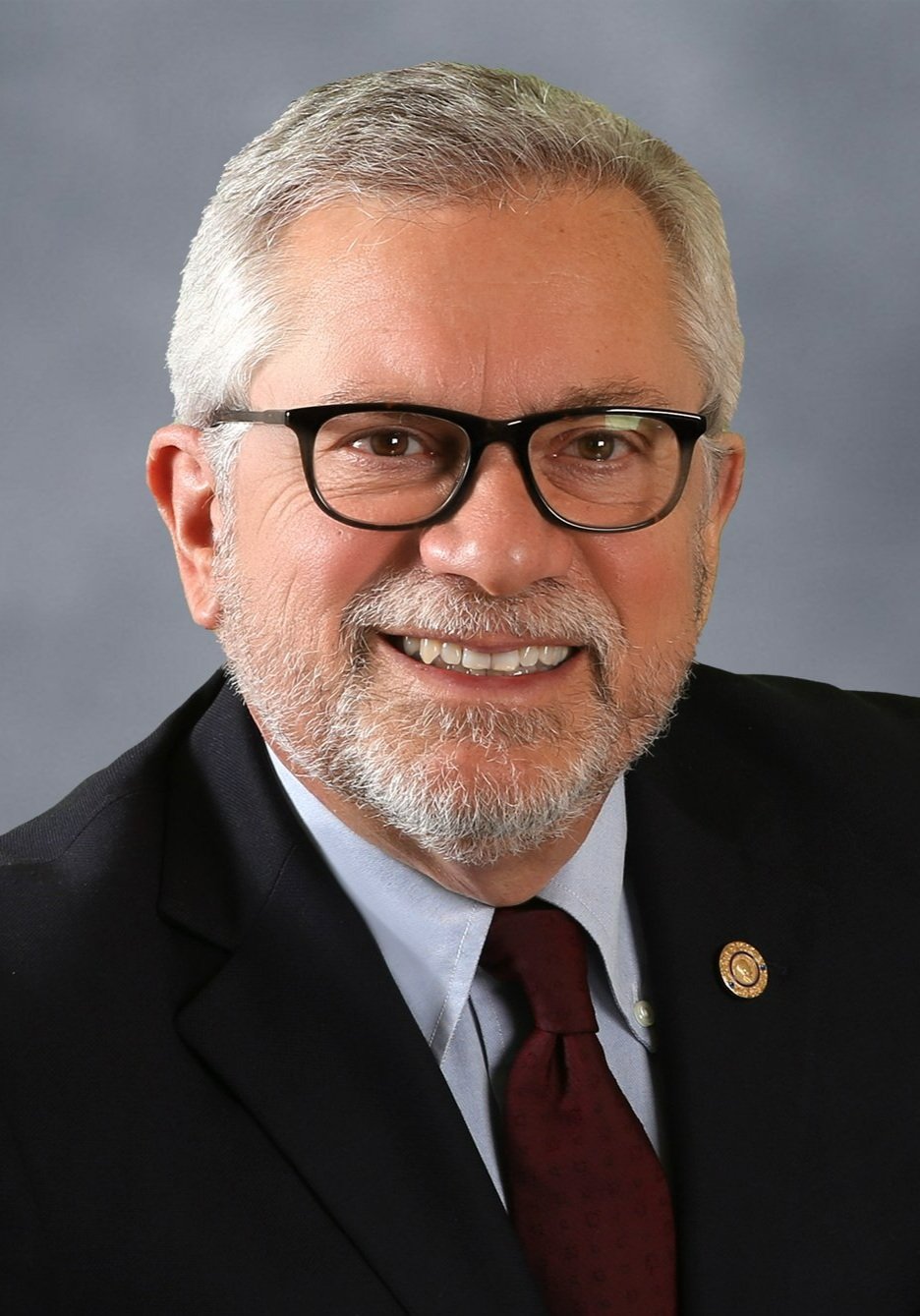
How many of us stop and think about this paradox? Ocean levels are rising. Sea levels along the coastlines of the United States are forecasted to rise 10 to 12 inches by 2050 due to global warming and threaten to inundate major metropolitan areas in the U.S. and around the world. Yet our richest agricultural regions in California and Texas, which have vast coastlines, are experiencing persistent and worsening drought and the depletion of water resources.
Persistent drought in the Western U.S. has the potential of becoming a national security crisis of catastrophic proportions. According to California Polytechnic University College of Agriculture, Food and Environmental Sciences, California produces nearly half of U.S.-grown fruits, nuts, and vegetables. The state produces over 99% of the following commodities in the U.S: almonds, artichokes, dates, dried plums, figs, garlic, kiwifruit, olives, pistachios, raisins, and walnuts. California produces over 80% of the nation’s tomatoes and nearly 20% of the nation’s dairy products.
A February 2022 study in Nature Climate Change, cited by National Geographic concluded that global warming has made the western drought about 40% more severe than it normally would have been, making it the driest stretch in the Southwestern U.S. in 1,300 years. The study concluded there is a very strong chance the drought will continue through at least 2030.
A significant reduction in California’s agriculture production could result in a devastating food crisis in the U.S. that would make every other crisis – pandemics, recessions, climate-related disasters – pale by comparison.
Texas is the nation’s largest producer of beef – over 15% of the nation’s supply. Texas produces most of the nation’s cotton, sheep, and goats, and accounts for a significant portion of the nation’s feed crops, i.e., hay, sorghum, etc.
In his renowned work History of the World, British historian J.M. Roberts explains how civilizations in Europe, the Middle East, and Western Asia during the Neolithic Period from roughly 4500 to 2500 BC developed and flourished. Roberts explains how the developing civilizations learned to farm food on a scale large enough to support the development of population centers. This also allowed those who were not committed to supplying food to the community to focus on other important scientific and societal developments.
Eventually, advances in the preservation and storage of food enabled humans to travel long distances, explore new lands, and discover natural resources that enabled developments and advancements in many other areas of society.
The development of settlements in Western Europe and the Mediterranean is evidence of this. Remains of settlements on the island of Lipari date to the late Neolithic Period. Enormous Greek temples and residential settlements in Sicily and elsewhere are examples of what civilizations were able to accomplish. Food became an important, if not the most valuable trade commodity.
In contrast, other parts of the world including North America, where the inhabitants had not evolved from hunter-gatherers into productive farming communities, remained largely undeveloped until the arrival of settlers from Europe and the Middle East thousands of years later.
To this day, parts of the world where water is scarce and farming techniques are underdeveloped are real-time examples of the importance of a stable food supply to the development of stable and thriving societies.
A stable food supply is nothing less than the most important foundation upon which civilizations, societies, and nations have developed and flourished.
Given that the interruption of such a large portion of the nation’s food production may potentially be at stake, one might consider the desalinization of seawater, notably agriculture production, to be a national priority of the highest order. Yet it is rarely discussed in our national political discourse with any kind of urgency.
Last year the U.S. Department of Energy (DOE) and the National Alliance for Water Innovation (NAWI) announced $5 million in federal funding to develop desalination technologies that will help bring freshwater supplies to communities across the nation. The Infrastructure Investment and Jobs Act, signed into law in 2021, contains $1 billion over five years for water reclamation and reuse projects, including $550 million for water reclamation and reuse, and $250 million for water desalination projects.
In comparison, the national defense budget for 2022 is $782 Billion. The Infrastructure Investment and Jobs Act includes $65 billion to improve access to high-speed internet, $21 billion to clean up Superfund and brownfield sites, and $65 billion for clean energy transmission.
Of course, those initiatives are important, too. But shouldn’t the nation’s food supply be considered a most basic element of the nation’s infrastructure and a national security priority?
There are desalinization initiatives that, while costly, are localized success stories. The Carlsbad desalination project in San Diego County, California, is the largest desalination plant in the western hemisphere. The $922 million project was the first large-scale desalination plant on the West Coast, privately financed and developed by the Poseidon Resources Corporation. According to Watertechnology.net, the plant produces 50 million gallons of desalinated seawater a day and provides 10% of San Diego’s drinking water.
An estimated 200 or more smaller local/municipal desalinization facilities are currently in operation across the U.S., operation. Most are in California, Florida, and Texas.
Perhaps the world’s biggest and most successful desalinization initiative is in Israel. On August 7 ISRAEL21c, a nonprofit organization of journalists and content creators published an article on how Israel used innovation to beat its water crisis.
In 1999, the Israeli government initiated a long-term, large-scale seawater reverse osmosis desalination program that has culminated in the establishment of five operational desalination facilities. Israel has two more desalination plants in development, one of which will be operational by 2023. Because of these desalinization initiatives, wastewater treatment facilities, and conservation practices, Israel now produces 20% more water than the country needs. This has allowed agriculture to flourish in areas that were barren deserts only a few decades ago.
The opponents of desalinization have legitimate concerns about the impact of desalinization facilities on marine life. In May, California officials rejected a proposal for a $1.4 billion desalination plant but indicated they are open to growing the state’s capacity to turn Pacific Ocean seawater into drinking water to buffer against persistent drought. That and other proposals have been rejected over concerns desalinization facilities would kill marine life and drive up the cost of water.
But isn’t that what technological evolution is all about? A national desalinization initiative must include technology development that preserves marine life to the best extent possible while providing adequate water supplies to assure that our nation’s food supply is secure.
Last November Congress passed, and President Biden signed into law, the Infrastructure Investment and Jobs Act. Last weekend the Senate passed the Inflation Reduction Act, which will fund, among other initiatives, $369 billion in Energy Security and Climate Change programs. These are important initiatives and a tremendous st
ep forward in making our nation’s infrastructure secure while addressing energy security and climate change.
Given the dire situation that is evolving due to persistent drought, should a Food Security Act be on Congress’s docket sometime in the very near future? In the interim, perhaps some significant carve-out in the Infrastructure Investment and Jobs Act for desalinization research seems a prudent next step.

Richard Zacaroli
For over 30 years Richard (Rich) Zacaroli has served on boards of directors in the education, cultural exchange, community development, and banking sectors. He is chair of the board of directors of Greenheart International. He is a member of Rotary International, a Paul Harris Fellow, and past president of the Rotary Club of South Sacramento. He is an occasional lecturer at CSU-Sacramento, and has authored numerous articles focused on the socio-political environment in the U.S. After serving in the U.S. Air Force where he was awarded the Commendation Medal, Rich has held senior and executive management roles with high technology companies in the Aerospace sector. He has worked extensively throughout Europe, Asia and the Middle East, and was based in Rome, Italy for nine years. He has held U.S. and NATO security clearances. Rich has an MBA degree from Lake Forest Graduate School of Management and a BS degree from Wichita State University. Rich and his wife, Lori live in Sacramento, California. They have a blended family of five children and twelve grandchildren.






